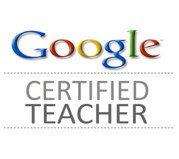There is something on my mind...
Those of us who have been drinking the EdTech Kool Aid sing the praises of our gadgets and tools. Integrate! Engage! Connect! Web 2.0! It's all good, if only everyone would do it right. Right? But more and more I find myself wondering if we are simply ignoring another inconvenient truth. Is sustainability the overlooked 21st century literacy?
In this blog post "I Call B.S.," written after TEDxDenverEd this past summer, the blogger complains that TEDx had a "secondary agenda" beyond the realm of pure education.
"Despite hearing from some amazing educators, there was an obvious trend with a political and social agenda. One that I wasn’t expecting and it really caught me off guard. More towards the end of the evening, the presentations were increasingly chocked full of buzzwords like: food justice, activism, organic, global citizenship, green, climate change, social justice, vegatarian, brown, awareness, community, school garden, nutrition, empowerment, global model, and environmental literacy."
As I read the post again, I appreciate his point about education conferences being cluttered with buzzwords that can detract from the most important and enduring value of education- the connection between students and teachers. However, can we really keep separating ourselves from our source? We must have clean food and water to sustain our existence. Education, as important as it is, is secondary to basic survival and quality of life. I fail to understand the offensiveness of an agenda that recognizes that schools must address issues of sustainability if we are to maintain a quality of life that affords us to grow and learn and create into the future. Dr. Tim Tyson, in his excellent post Do We So Easily Fool Ourselves? asks,
"Have we really become this selfish: we demand the good life, all of it. We want it now. We will sacrifice the future to have this moment?"
What does sustainability and selfishness have to do with the "dark side" of educational technology? As technology enables us to do more, think more, share more, create more, connect more and in many cases live a better quality of life, I sometimes wonder if we are indeed sacrificing the future to have this moment?
As new equipment replaces the old equipment, where does the old equipment go? As batteries die and are replaced, where do we properly dispose of the old ones?As I said, I don't know much, not nearly enough. When I started down the EdTech path, this wasn't on my mind at all. Who knew I would be spending evenings after work researching battery and computer recycling options? The more I try to find out, the more I realize I don't know anything at all. Left with more questions than answers, I do the best I can in each moment. And I fear that it's not good enough, that our children deserve better.
 Here are some items I threw away at the beginning of the school year. I put them in a box and placed the box outside the door of my classroom with a note that said, "broken." The next day they were gone. Everything else that is broken beyond repair is still around, waiting for me to figure out the best method of disposal. If you think it's as easy as a few web searches or phone calls, it's not.
Here are some items I threw away at the beginning of the school year. I put them in a box and placed the box outside the door of my classroom with a note that said, "broken." The next day they were gone. Everything else that is broken beyond repair is still around, waiting for me to figure out the best method of disposal. If you think it's as easy as a few web searches or phone calls, it's not. It's easy enough to find a slick-looking website promising to recycle batteries for a fee. It looks legit, I guess. There are plenty of recyclers around here that will take computers and some related equipment. However, the more I dig and ask, the more I read and watch documentaries, the more skeptical I am about what happens to the stuff once it's no longer useful to us. We plow through it, wanting the newest and best and the new quickly becomes way too old. As evidenced by what I see on my neighborhood's garbage day (especially right after Christmas), most people don't even think about recycling- they put their old monitors and printers out with the trash.
Heidi Hayes Jacobs answered my question about teaching students about sustainability with the statement "We have to teach students to be futurists." I agree with her. These problems should not be the sole domain of the tech coordinator, these should be problems the students wrestle with and learn about as part of the science curriculum. These are real issues facing students. If technology is to reach it's potential in education, we can no longer avoid the seamy underbelly of the toxic waste that's accumulating somewhere as a result of our love affair with gadgets.






No comments:
Post a Comment